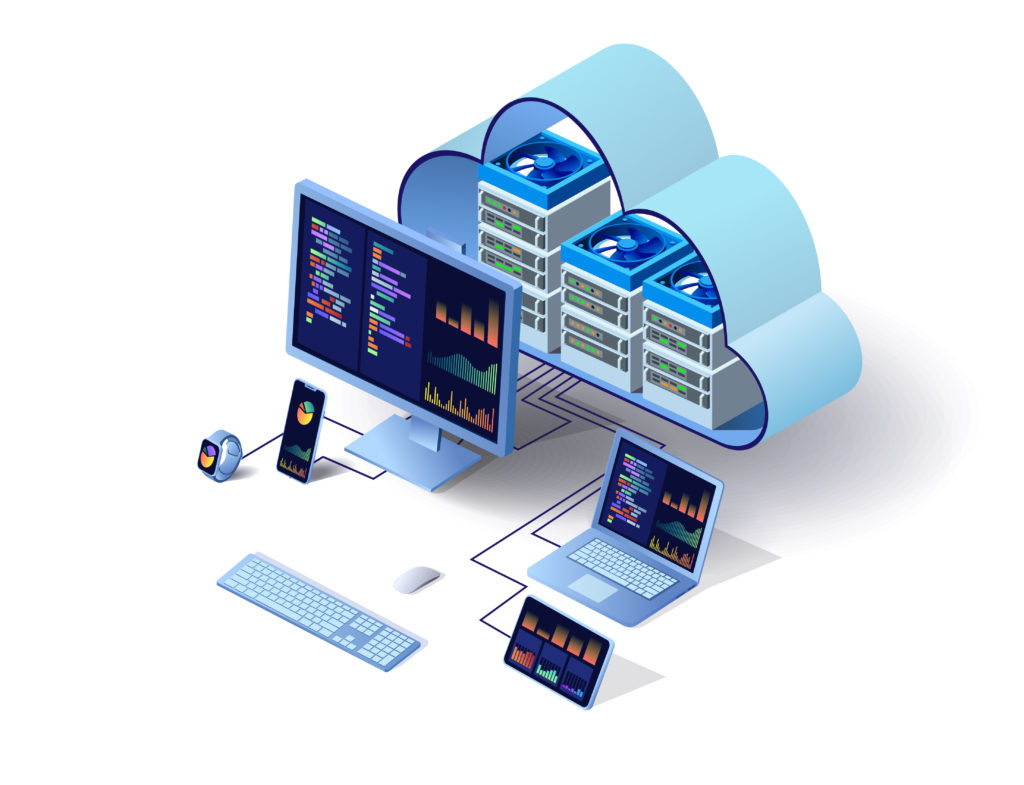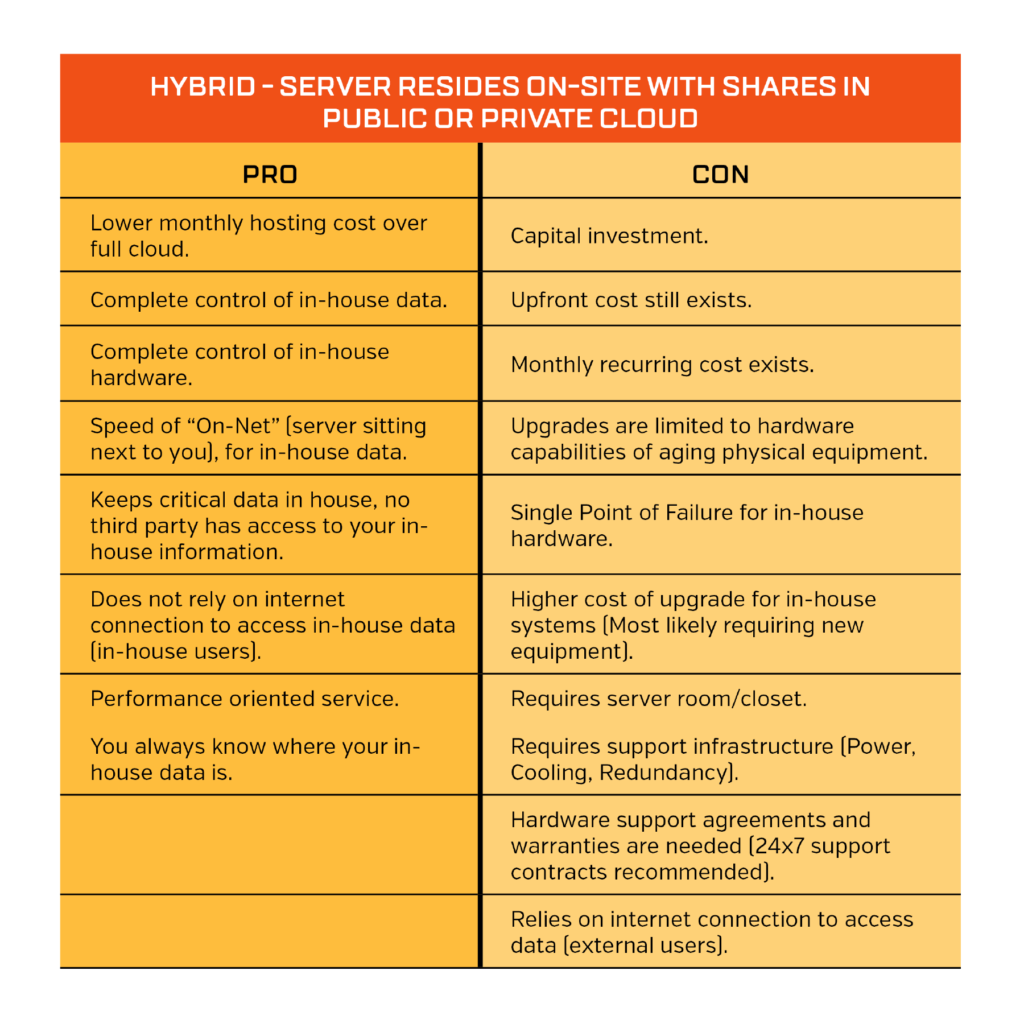Cloud computing became a common reality for many businesses last year when COVID-19 caused business disruption and employees had to start working from home. However, many companies are still afraid to migrate their systems and data to the Cloud. Some of the biggest concerns for businesses are related to the issues of confidentiality of information, and having to rely solely on internet connections, especially when rolling black outs are a common occurrence!
Using a Cloud Hybrid Solution can be a viable alternative to migrating completely to the Cloud, or being completely restricted to In-House Servers. Cloud Hybrid Solutions can be tailored to each business, enabling you to choose what you want to migrate to the Cloud, what to keep on In-House Servers, and which cloud services (public and private) are best to use for each purpose.

PUBLIC CLOUD SERVICES
AWS and Azure are examples of Public Cloud service providers. When you contract with a Public Cloud service provider, you are essentially renting a piece of their distributed data center infrastructure. Known as IaaS, public clouds deliver cloud infrastructure as a service. Service providers offer massive economies of scale and scale elasticity. Since they run fully automated, on-premise data centers cannot compete on price or efficiency.

PRIVATE CLOUDS
A Private Cloud might be any cloud deployment used by one organization as the only tenant that has control of the underlying hardware. When you set up a dedicated cloud infrastructure for your business, you are using a Private Cloud. Whether you manage it yourself or contract a third-party service to manage it, and whether you host it on-site or off-premises, it is still considered a private cloud with access available to a limited few.
IN-HOUSE SERVERS
Keeping your data on an in-house server means that all your critical and sensitive information is at your fingertips and away from third parties. Inhouse servers do not rely solely on the internet, rather data on the server is accessible by those on the same Local Area Network (LAN) or by those who have access using a VPN (Virtual Private Network). This requires users to be wired in at the base location of the network.
THE PROS & CONS

IS A CLOUD HYBRID SOLUTION RIGHT FOR YOU?
The implementation of Cloud Hybrid Solutions has grown significantly over the past few years. This solution may be the “best of both worlds” for your business. Unless you have clear-cut needs fulfilled by only Cloud Computing or In-House Servers, why limit your options? Hybrid Cloud Computing may be what takes your business to the next level.
FUSE3 CAN HELP
Regardless of how or why you may be considering a Cloud Hybrid solution, if you are unsure how to go about the logistics of deployment, we are there for you. FUSE3 can help you navigate the ever-changing landscape of information technology.
